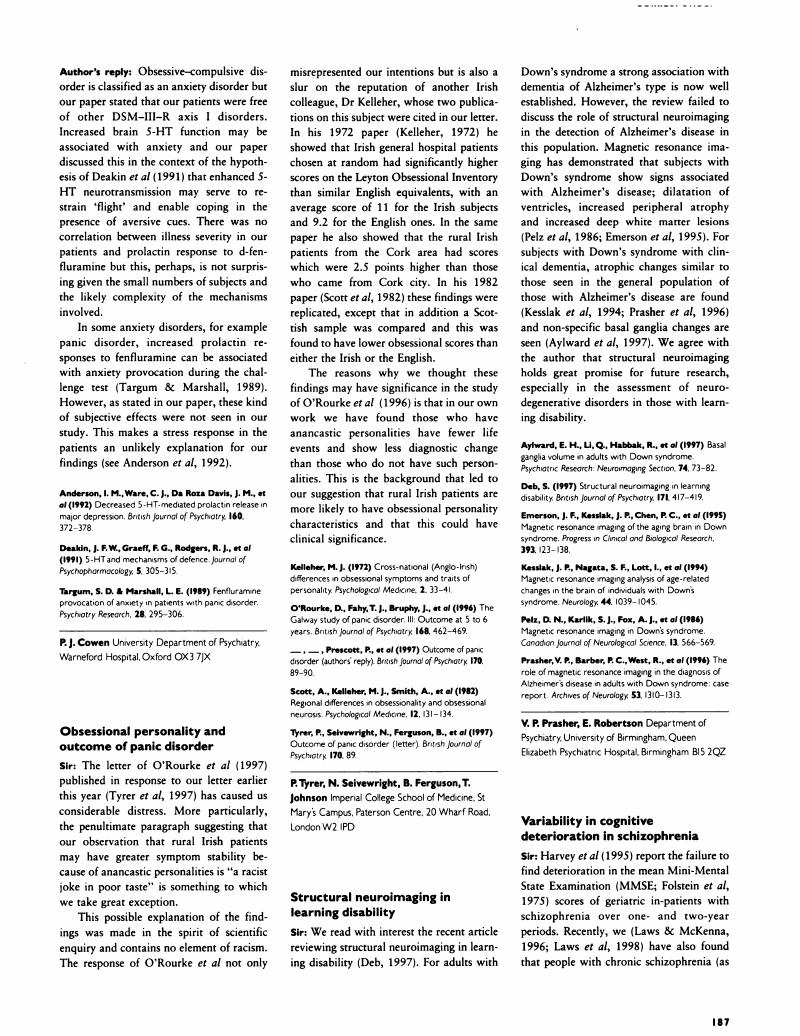Crossref Citations
This article has been cited by the following publications. This list is generated based on data provided by Crossref.
Navinés, Ricard
Egmond, Elfi
and
Martín-Santos, Rocío
2016.
Panic Disorder.
p.
169.
Muam MAH, Pascal
2023.
Assessing the Impact of Racism on Neurodiversity based on Natural Language Processing and Artificial Intelligence.
Journal of Information Technology and Digital World,
Vol. 5,
Issue. 1,
p.
13.






eLetters
No eLetters have been published for this article.